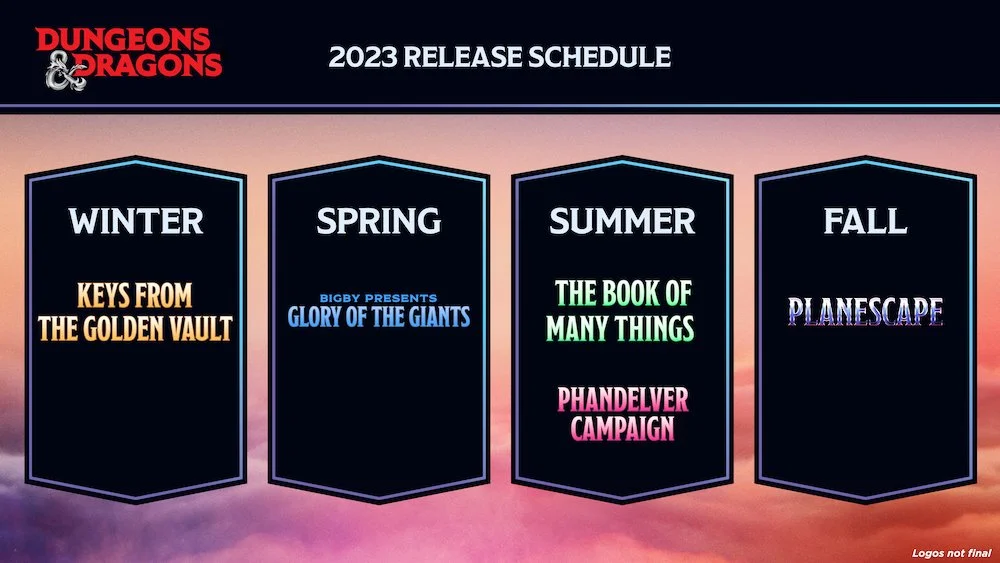A Move to Consolidate Print Options or to force to D&DBeyond?
Change is on the horizon for the tabletop role-playing game (TTRPG) community as Wizards of the Coast (WotC), the destructive force behind Dungeons & Dragons (D&D), announces a significant shift in its distribution strategy starting January 1, 2024. In an email sent to various retailers, it was revealed that Penguin Random House (PRH) will no longer distribute WotC's flagship product, D&D. The abrupt message simply stated, "Effective December 31, 2023, Penguin Random House LLC will cease distributing titles for Wizards of the Coast LLC."
This move is bound to raise questions and concerns among D&D enthusiasts and retailers alike, as it marks a departure from the established distribution landscape. As of 2024, the responsibility for distributing D&D products will fall on six companies: Alliance, Diamond, GTS, Magazine Exchange, PHS, and Southern Hobby.
One of the key points of contention is the frequency and volume of D&D publications. Wizards of the Coast has adhered to a quarterly publishing schedule, regularly releasing two to six different books (including variant covers) every three to four months. This steady stream of content has contributed to the game's vibrancy and continuous growth over the years. PRH, as a massive publishing and distribution entity, played a substantial role in making these releases available to retailers and game stores across the country.
The decision to shift away from PRH, without a clear explanation from Wizards of the Coast, raises questions about the potential implications of this move. One of the most prominent concerns is whether this shift is an attempt by WotC to reduce the number of print options for their products and to encourage users to embrace their D&D Beyond online platform.
D&D Beyond, an official digital toolset for the game, offers a range of features such as character creation, rules reference, and digital books. While it has found its place among many D&D players, it's important to note that it isn't a perfect substitute for physical books, and not all players are equally enthusiastic about shifting to a digital-only experience.
The move away from PRH could be seen as a strategic decision by WotC to gain more control over the distribution process and potentially steer more players toward their digital offerings. With the promise of a new edition on the horizon, this shift could signal WotC's intent to shape how players access their products in the future.
However, the impact of this change remains to be seen. Retailers, especially local game stores, have played a crucial role in fostering the D&D community by offering physical products, hosting events, and providing a gathering place for players. The shift in distribution could affect their ability to stock and sell D&D products efficiently.
In the end, the decision by Wizards of the Coast to change its distribution strategy for Dungeons & Dragons is a significant development that raises important questions about the future of the game. While it may be seen as an attempt to consolidate print options and promote digital tools like D&D Beyond, the full impact of this shift will become clearer in the coming months. Players and retailers will need to adapt to these changes, and the TTRPG community will undoubtedly be watching closely to see how this move shapes the future of their beloved game.



